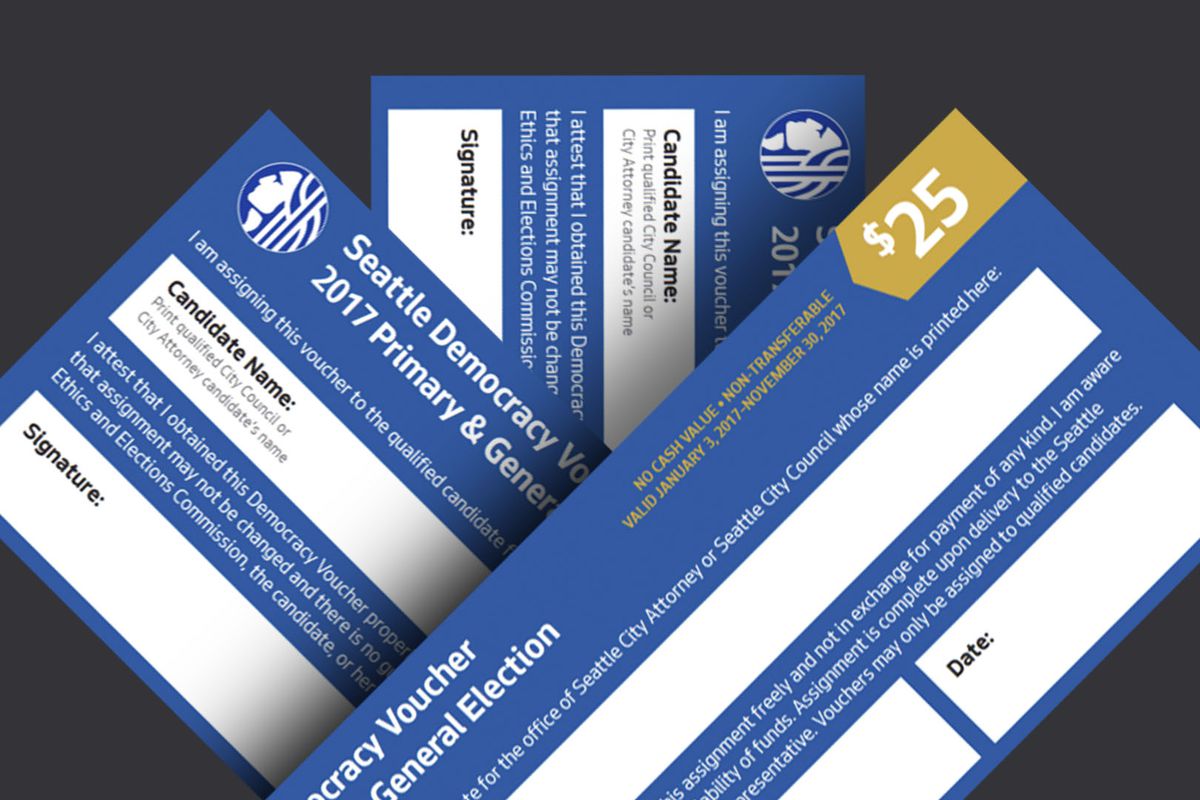The addition of proposed “Democracy Dollars” to Albuquerque’s voting ballot this November 5th has sparked furious debate over the merits and drawbacks of the unique campaign funding plan. Proponents of the plan say it will increase voter participation by allowing citizens who would not normally contribute funds to a campaign to do so with their Democracy Dollars. Supporters also argue that it will allow for a more diverse slate of candidates who aren’t wealthy or have the moneyed connections of an incumbent candidate. Alternatively, those opposing the Democracy Dollars plan say that it will cost the taxpayers too much, creates new opportunities for abuse, and will quickly deplete the $3.7 million tax payer dollars that have built up in the city’s Open and Ethical Elections Fund.
Whether or not these assertions are based in fact or just conjecture is unclear and partly immaterial at this point, since voters still have yet to decide on whether or not it will pass into law. But the punditry and editorial arguments about the possible benefits and potential downsides of the Democracy Dollars program have yet to acknowledge one of the root causes of confusion surrounding this initiative: it’s flagrant and possibly intentional ambiguity.
When the ballot initiative began accruing signatures for the Democracy Dollars plan it was already flawed in its vaguely worded statement that “eligible city residents” would be receiving the vouchers. It doesn’t require a law degree to point out that the term “eligible” does not mean the same as registered voters or property owners (as was the case with Seattle’s Democracy Dollars program). So, when the ballot initiative has confusing or unclear language and accumulates enough signatures to become a ballot measure, that language has to remain – causing voters to be unclear as to the minutia of what they are voting for.
NMBC reached out to Common Cause New Mexico (CCNM), the (George Soros funded) nonprofit organization responsible for the ballot initiative and its haphazard wording, for clarification on what “eligible city residents” means. We were told by the associate director of Common Cause NM that the term “eligibility” means eligible voters and that “if Democracy Dollars passes in November, the City will have to help define the term “eligibility” for implementation.” This is troubling for two reasons. Firstly, if the creators of the Democracy Dollars initiative meant eligible voters would be the recipients of the vouchers, why did they move forward gathering signatures with such nebulous wording when they could have been precise, knowing that the language could not be changed moving forward? Was this attempt at campaign finance reform so trivial that it didn’t warrant the proofreading of legal experts? With the amount of funding behind this initiative, its creators surely had the funds available to have it reviewed for clarity before presenting it to voters.
The second concerning facet of CCNM’s answer is that the language cannot be changed now that the initiative has been approved for inclusion on the November ballot, and there is no guarantee to the voters who the city will ultimately decide qualifies as an “eligible voter”. This ambiguity at the ballot is reminiscent of the state constitutional amendment measure on denial of bail from 2016 that is arguably a huge factor in our current revolving door crime issue. The language on that amendment was also vague enough to be interpreted in multiple ways by deciding judges, which resulted in uneven enforcement of bail laws and the allowance of criminals back on to our streets. CCNM’s reliance on “the city helping” to define who will be able to receive and use these vouchers is too open ended and subject to the whim of whoever is appointed to decide the parameters, when it’s supposed to be the city voters who make the call.
The long term ability to fund a program like Democracy Dollars should also be of concern to voters because the city has not performed a cost analysis of the initiative, and does not intend to unless voters approve it. So, the city will work backwards and potentially approve the plan with no idea whether or not the city will be able to fund it long term and still hold true to its claim that there will be no new taxes for the program. Under our existing public finance system, candidates who qualify for campaign assistance get block grants with mayoral candidates receiving $380,000 and City Council candidates getting about $40,000 depending on the size of their district. If the Democracy dollars program is passed that money from the public election financing will remain in play and is potentially doubled if they can accrue enough Democracy Dollar vouchers.
Albuquerque contributes one-tenth of 1% of the city’s general fund budget into the Open and Ethical Elections the fund each year, and the balance is currently around $3.7 million. Some quick math tells us that if multiple candidates are running for Mayor and City Council, and are all receiving public election financing (remember that’s $380,000 and $40,000 for each qualifying candidate), as well as pay out from collecting Democracy Dollars, that $3.7 million won’t last long and will not be replenished fast enough for future elections. That’s when the promise of “no new tax increases” for democracy dollars might fall apart. There is simply not enough money in the Open and Ethical Elections Fund as it sits to pay for this program in the long term and live up to its lofty promises.
Voters will have to decide if they care more about the ambiguity regarding who exactly would receive Democracy Dollars and fuzzy math on the ‘no new taxes will be required’ or the stated goals of the program of increased citizen participation in elections and leveling the playing field for non-wealthy candidates.

